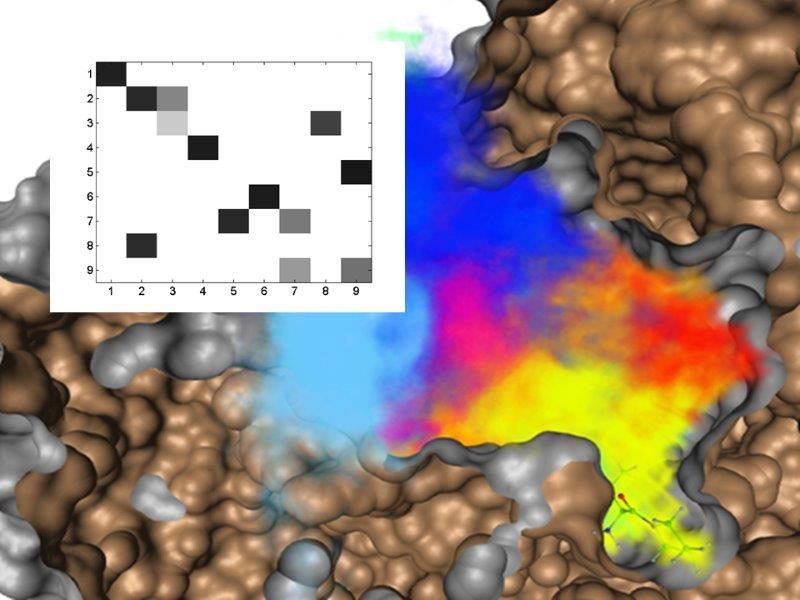The main objective of this project is to develop an adaptive sampling strategy for the identification of cycles in transition networks. To analyse transition networks, methods of combinatorial optimization are required. This necessitates the design of new possibly heuristic methods and the development of exact mixed-integer programming (MIP) models to evaluate the quality of the heuristics. Experience has shown that the corresponding optimization problems exhibit a high degree of symmetry, which poses additional challenges to state-of-the-art MIP solvers. A long-term goal is to speed up the solver software SCIP in this respect. Previous work for the recognition and exploitation of symmetry in SCIP already exists. The cycle detection provides not only mathematical progress, but it also reveals an important element of natural processes: the micro-catalysis. Ion transport with the help of channel proteins is done by cyclic movements (pumping) of the proteins. The short time scales of these cycles are crucial for the long-term process. These movements are cyclically, because the protein must remain "intact" during the process. In particular, when we combine simulations of classical and quantum physics, such cycles are possible even on longer time scales.
